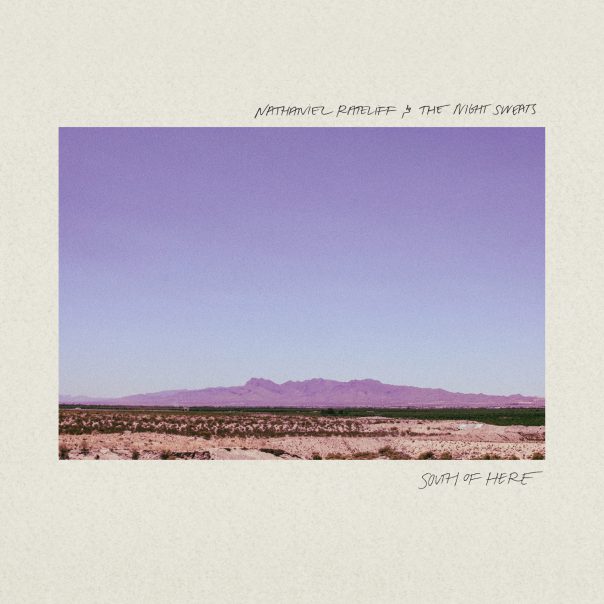ALBUM REVIEW: Nathaniel Rateliff writes a new chapter on ‘South of Here’

Nathaniel Rateliff and the Night Sweats, “South of Here.”
Rags-to-riches stories are easy to write. What is considerably more difficult is telling the story of what happens next. Often, the hero, who we have staunchly supported through tough times, becomes an insufferable egoist, a petty tyrant or a tremendous bore. Nathaniel Rateliff and the Night Sweats have mostly been busy since rocketing to success on the coattails of their surprise hit “S.O.B.” almost a decade ago.
South of Here
Nathaniel Rateliff and the Night Sweats
Stax, June 28
9/10
Get the album on Amazon Music.
The band has released two studio albums, along with Rateliff’s solo album It’s Still Alright in 2020, collaborated with everyone from Willie Nelson to Orville Peck, and toured the world. South of Here, their fourth album, feels like the first time the band has had a chance to take a breath and reflect on its wild ride (before an arena tour later this year).
The result is an emotionally and musically dynamic album that successfully fuses Rateliff’s more ponderous acoustic solo material and the Night Sweats’ relentlessly groovy rhythm section.
Nowhere is this fusion more powerfully evident than the album’s opener, “David and Goliath.” It’s as close to a novel as a three-minute pop song can get, with rising action and climactic revelation. Sparse piano (like that bit that PaulMcCartney plays after the insane glissando on “A Day in the Life”) provides some tension at the outset. “Can I get out of my head?/ I don’t know,” Rateliff sings as the chord progression moves from major to minor to suggest a somber trajectory.
As the song picks up steam, feedback-drenched guitars, which are unusual but not unheard of in Rateliff’s work, evoke impending rock and roll doom. “And the old me is saying/ Another round to kill/ Never time to heal/ That’s how your story goes/ I want it my way/ Closing my eyes, baby/ I’ll find a way out,” Rateliff sings as the song descends into sonic chaos. It manages to capture the incessant self-deception of anxiety and addiction as well as the ceaseless resistance of the stalwart and sober, who endure not one, but many dark nights of the soul.
Elsewhere on the album, Rateliff reflects on his childhood in Missouri. Over the Mellencamp-esque jangle of “Heartless,” he describes a fire that grew out of control. “I remember the flames in the grass, how they danced in a line/ As the fire swept across the prairie, it was on to burn our eyes/ It was so cold leaving the comfort of my Missouri home/ And my childhood left me so broken, man that I didn’t know/ We were coming out even, we’re coming out еven,” Rateliff sings.
Some fans are likely to recognize these lyrics as a reference to an occasion when Rateliff and childhood friend, longtime collaborator and Night Sweats bassist Joseph Pope III were careless with matches as kids and set fire to field outside of town. But for Rateliff, in hindsight, it was payback.
Musically, the album is bit of a grab bag, moving between sumptuous Van-Morrison-style grooves with liquid horns on songs like “Get Used to the Night” and the gentle AM rock of Graceland-era Paul Simon on “Remember I Was a Dancer.” Check out the nearly punk energy of “Call Me (Whatever You Like),” which takes the band in exciting new directions.
“The reckoning is wrecking me,” Rateliff sings on “David and Goliath.” The songs on South of Here suggest that Rateliff and company have gone up against a giant and come out on top.
